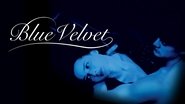saraccan
It's an American suburban crime movie with great acting by Dennis Hopper (bad guy) but overall pretty unmemorable.The story didn't really offer anything to stand out as most of the actions of the main character did not have meaningful reasoning behind them. Also what was portrayed as bizarre or shocking in here doesn't really convey similar emotions now in 2018 as opposed to what they probably did in 1986. It's about a young guy who finds a chopped human ear and starts playing detective for no apparent reason.
classicsoncall
There seems to be all kind of misdirection in this story, as things you expect to happen never come to pass. For example, I expected Detective Williams (George Dickerson) to be just as much a corrupt cop in the story as the Yellow Man/Detective Gordon (Fred Pickler) turned out to be. And when Jeffrey Beaumont (Kyle MacLachlan) came up with his theory that Frank Booth (Dennis Hopper) kidnapped Dorothy Vallens' (Isabella Rossellini) husband and son, I thought that was just so unlikely that I dismissed the idea out of hand. Turns out both of those assumptions were pretty much blown to bits as things came to pass.For a weirdly strange film with a lot going on, I thought the story was relatively easy to follow if one isn't distracted by the slick filming and Dorothy's bizarre behavior. No stranger to odd roles, Dennis Hopper excels at being a villain, just check him out in such diverse characterizations as "Mad Dog Morgan" and "Kid Blue" in completely different film genres. One hint offered by the script that Frank Booth actually DID cut off the ear of Dorothy's husband was when he remarked "Do it for van Gogh". At that point I had to reconsider my earlier reservations about just how accurate Jeffrey's assumptions would turn out to be.My favorite scene in the picture - Dean Stockwell lip-synching an old Roy Orbison tune 'In Dreams'. It almost looked like Stockwell was camping it up for real except that the voice was distinctively Orbison. The only real question I'd have about the entire picture was the one that set in motion the entire misadventure. How did Dorothy's husband's ear ever wind up in the open field in the first place?
TheBigSick
First, the plot lacks credibility. Jeffrey's father gets a serious stroke and Jeffrey should be more concerned with his father. However, in the movie, Jeffrey acts like a SJW and a pervert. He messes up with a married woman Dorothy, and fights with the bad guys that torture Dorothy. Jeffrey almost ignores his father. Secondly, the storytelling is horrible. Telling a simple story in a complicated way, is the last thing a director should do. The narrative is just unfocused. What is the point of the sex scene between Dorothy and Jeffrey? Third, character development is a total failure. Who does Jeffrey love? Dorothy or Sandy? I'm afraid even himself does not have an answer. Why does Sandy give up on Mike? What is in her mind? The main antagonist, Frank, is just flat and one-dimensional, and nobody knows his motive. He is just a psychopath? Fourth, the music score is strange. It always appears at an improper time with no purpose.Finally, with nothing in stake, there is no thrill at all. It should not be called a thriller. Instead, we can categorize it as a non-thriller. All in all, the rating for this movie is 0/10.
oOoBarracuda
The 1986 feature by notoriously difficult to understand David Lynch, was an exercise for the auteur to dabble with the topics of voyeurism and kidnapping. Blue Velvet was the vehicle Lynch used to film one of his most vivid childhood memories of seeing a bloodied naked woman walking down the street close to his childhood home, and build a film around that vision. What was her story? Why was she in the street naked and wounded? Lynch never knew, but Blue Velvet delves deep into the most idyllic of places and proves just how seedy of an underworld can exist where you least expect it. David Lynch, who even today describes himself simply as an Eagle Scout from Missoula Montana, has always been fascinated by what lurks below the surface. Growing up in one house resting behind a white picket fence after another, David was always in-tuned to the evil that may lurk beneath small town life. As Lynch has said: "I discovered that if one looks a little closer at this beautiful world, there are always red ants underneath." Jeffrey Beaumont (Kyle MacLachlan) is a college student who has returned home after the news that his father had been hospitalized. Tasked with running the hardware store his father owns while he is in the hospital, Jeffrey quickly settles back into the small town in which he was born, Lumberton, a town reliant upon lumber where it seems every house has white picket fences and tulips growing in the yard. Despite the picturesque atmosphere of Lumberton, Jeffrey discovers a human ear in a field on his way home from visiting his father in the hospital. Understandably troubled by his discovery, Jeffrey takes the ear in a bag to a detective he knows in town. After initially keeping him in the fold as the investigation gets underway, Jeffrey is soon told to forget about it and told that no further information will be divulged to him. Unable to forget, Jeffrey seeks out ways to stay involved in the case, one of those ways is by spending time with the detective's daughter, Sandy Williams (Laura Dern). Through their interactions together, Sandy shares what she knows about the case with Jeffrey, as her bedroom lies just above her father's home office. Sandy is able to enlighten Jeffrey that the case has to do with Dorothy Vallens (Isabella Rossellini) who lives in an apartment near Jeffrey. Jeffrey's unquenchable curiosity leads him to break into Dorothy's apartment, with Sandy's help, and discover the sordid secrets his charming town actually holds.I'm not convinced that there is a film in cinema history with a better opening than Blue Velvet. The fire truck driving by, the man waving while watering his lawn, the red roses lining the white picket fences which descend underground to the world hidden by grass inhabited by insects immediately gets to the heart of David Lynch's evaluation of small towns. Showing such gleaming iconography of small town life and the contrast of what goes on beneath the surface, a dark violent reality covered from view is exactly the kind of microscope Lynch reveals to his audiences. In the most basic sense, Lynch warns his audience that things are not always what they seem, and there can be a whole other world hidden beneath the surface of even the most seemingly innocent place. The interplay between the most trustworthy of people and the secrets they lurk with in the shadows is a constant presence in Lynch's work. Perhaps my favorite part of Blue Velvet is the fact that it sounds exactly like a David Lynch production. I'm not actually, for once, referring to Lynch's perfect sound design with ample harrowing hollow sounds filling the ears of the audience; that flawless use of sound is present in Blue Velvet, but what is so prominent to me is how much the script sounds like it came only from the pen of David Lynch. I'm no casual fan of Lynch's work, mind you; I list Eraserhead, the auteur's debut feature not only my favorite Lynch film, but my favorite film of all-time. I'm one of "those Lynch fans" that will discuss the merit of Dune and actually enjoyed every d*mn fine episode of season 2 of Twin Peaks. I worship at the alter of David Lynch and would sit through, happily, anything he decides to give us. That fandom has led me to ingest hours of Lynch interviews and I was immediately stricken by the dialogue and how much it sounded exactly like words that would come directly out of Lynch's mouth. Laura Dern's entrance from behind the trees ranks among the best film entrances, in my book. Now is probably the best time to say that Laura Dern is painfully underrated and a phenomenal actress. The Lynch color palette complete with striking vibrant primary colors adds to the magic of a film with the name of a color in the title. Lynch is probably (look at me pretending to be objective) one of the greats at using high contrast shots to pack an extra punch in his shots and such contrast, in combination with the lighting and sound design create a complete Lynch experience even in one of his more linear productions. Despite the fact that the more linear the narrative, the comparatively less I like the entries in David Lynch's filmography, the auteur is my favorite director of all time and I am so thankful for his films and constant desire to detect what remains hidden in the world.















